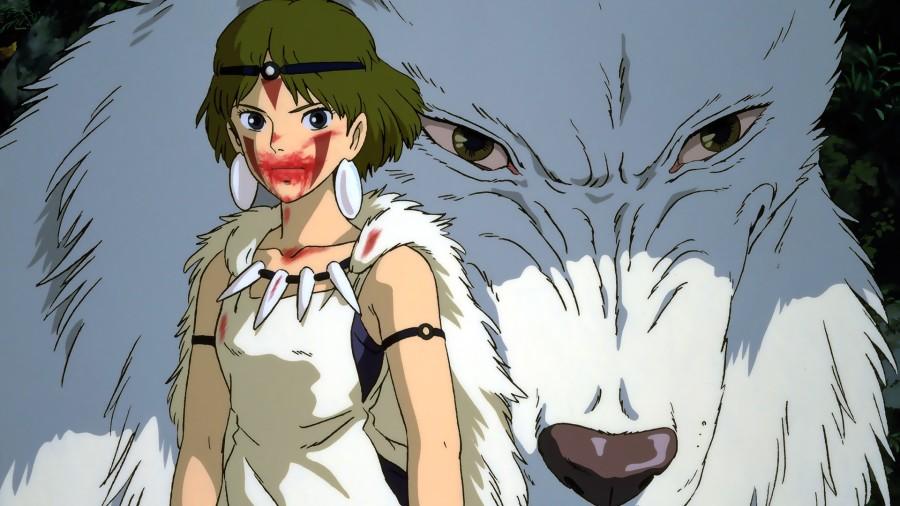Filmmaker Hayao Miyazaki surpasses the rest
Bella Anderson, Staff Reporter
Originally published December 17, 2015
“Princess Mononoke” (1999) features Miyazaki’s vengeful wolf princess. Characters like Mononoke offer an example of femininity unhampered by romance.
In the male-dominated industry of film, it can be hard to find pure, untainted feminism. This means media that goes beyond throwing in a single stereotypically strong, one-dimensional “tough girl” just so it can claim to be feminist, but instead provides dynamic and plentiful roles for women.
This lack of representation is such an issue that the Bechdel test was created. It tests films based on these factors: 1. film features two or more named women characters 2. who talk to each other 3. about something other than a man. A sad reality: so far this year, more than one third of movies have failed the Bechdel test. A few 2015 blockbusters that have failed the test include “Mr. Holmes,” “Papertowns” and the animation “Pixels.”
But fear not, because our search for actual feminist film comes to a satisfying end with that of Japanese filmmaker Hayao Miyazaki. At 74 years old, the director/producer/screenwriter/animator has created a library of feminist-forward animated tales.
One of the most admirable aspects of his films is the realism with which he portrays females; this also makes his character structuring stand out from the usual “strong woman” trope that is used. In countless movies, including his popular “Howl’s Moving Castle” (2005), “Ponyo” (2009), “Kiki’s Delivery Service” (1989), “Totoro” (1988) and “Spirited Away” (2002), the protagonist is a young girl, some as young as four or five years old.
In his 1999 film, “Princess Mononoke,” Miyazaki redefines what it means to be a princess. Although the film is quite graphic and at times visually disturbing, it is still a must-see as Mononoke proves an exceptional role model for young women. She stays true to her wolf-raised roots and trusts her instincts in a war-torn civilization. Where other princesses can’t wait for their prince, she remains wary of the handsome male protagonist throughout, instead taking up arms to fight the battle of environmental protection against human gluttony.
Miyazaki promotes the appreciation of differences in “Kiki’s Delivery Service,” wherein a young witch, Kiki, creates her own small business in a town that once treated her as a complete outsider.The highlight of the film and the peak of its feminism is when Kiki saves a boy who is hanging by a rope off of a crashing blimp. Here, Miyazaki entirely flips the “damsel in distress” scenario, and demonstrates the power of one young girl. Additionally, it is her unique ability of flying on a broom, the very skill she was once ridiculed for, that ends up turning her into a hero.
Miyazaki has long been admired for his promotion of other themes such as pacifism and his dedication to environmental conservation, but his feminism stands out from other modern story lines.
So when movie night rolls around, maybe skip over the Disney princesses for once and pick a Miyazaki.

























